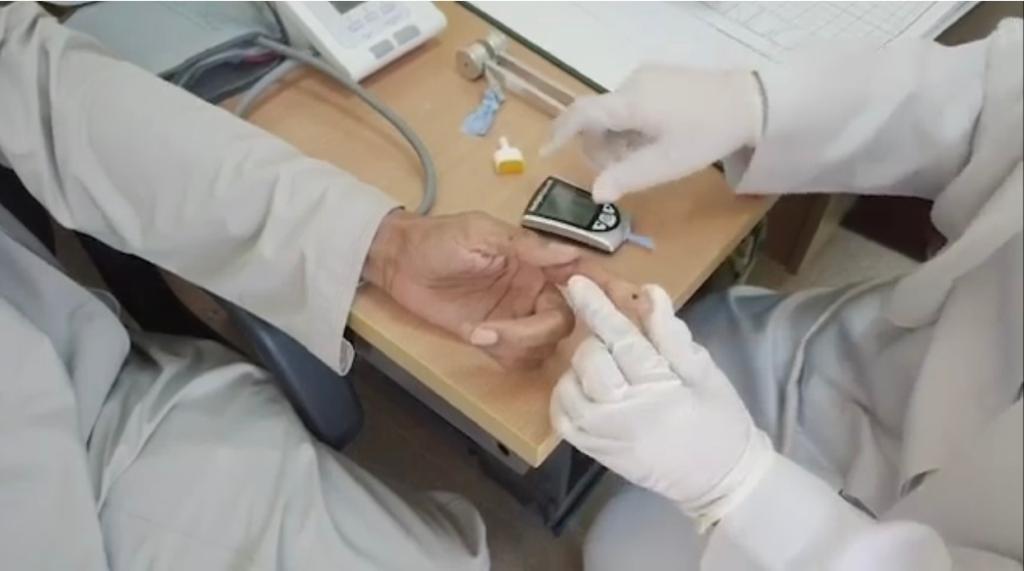

Muscat: People with pre-existing non-communicable diseases (NCDs) are more vulnerable to becoming severely ill with COVID-19 as indicated by global statistics; therefore, they should be more cautious to mitigate the chances of becoming infected with the disease and its complications.
Dr Shathaal Raisi, Ministry of Health’s NCDs Director emphasized the significance of adhering to the instructions of social distancing during the COVID-19 pandemic in order to prevent infection transmission within community thus preventing infection to people who are at risk of becoming severely ill with the virus as elderly and those living with NCDs.
Meanwhile, people living with NCDs such as cardiovascular diseases, chronic respiratory diseases and diabetes must strictly follow the prescribed therapy plan to keep their chronic disease under control, in addition to consulting the concerned physician in case their disease appears to be uncontrolled.
Dr Al Raisi pointed out that people with NCDs need to constantly measure the sugar and pressure levels and keep them within the normal rates to maintain diseases resistance of their body immune system.
Furthermore, NCDs Director pointed out to the need of maintaining normal levels of blood sugar being one of the most important defences against COVID-19 infection especially nowadays, adding that diabetics of all forms and types should ensure measuring and monitoring their blood sugar level frequently, especially when waking up (fasting), and 2 hours after a meal (breakfast, lunch and dinner).
The sudden increase in blood sugar readings is familiar when the patient’s lifestyle changes or being exposed to a considerable amount of stress which is exactly what everyone is exposed to at the moment.
People living with NCDs should undertake extra preventive and precautionary measures to keep their health conditions under control, and should take medications regularly as instructed by the treating medical team.
The clinics of Diabetes, Hypertension, and Asthma affiliated to the Ministry of Health’s Primary Healthcare Institutions are playing an effective role in the current health situation where health staff communicate with the patient when the appointment is approaching and confirm his/her health condition.
If the patient’s chronic disease was not under control, then he/she is received in the specified date and time, but if the patient is in control of the disease, medicines are prescribed for two months to each patient where he/she asked to send anyone to receive the medicine.
On the preventive role of person with chronic disease’s family, Dr Shatha pointed out that it is essential for family members of a diabetic patient to act as a source of risk for the patient by getting infected with COVID-19 if they do not take preventive measures and follow best practices to prevent the spread of infection.
Al Raisi pointed out that Coronavirus (COVID-19) can affect people with asthma as a result of chronic bronchitis, especially in those who are not in control of their asthma. She explained that the best way at present time to prevent the risk of this virus to asthma patients is to avoid exposure to this rapidly spreading virus and the stimuli of asthma attacks, while maintaining control of the asthma by following the treatment plan, using inhalation drugs properly, taking preventive daily inhalers regularly and ensuring the availability of the asthma inhaler and using it when necessary.
Dr Shatha stressed the need to consult a doctor if the symptoms of asthma are reoccurring, which indicates that the patient's control of asthma is below the level.
As the holy month of Ramadhan approaches, Dr Shatha pointed out to the importance of diabetic to consult a doctor to determine the ability to fast and to adjust the doses of the drug. Some people with diabetes can fast during the holy month within a certain specificity, while others are not advised to fast for the sake of their health.
It is stressed that diabetic should keep following healthy diet and drinking plenty of fluid between the period of breakfast and suhoor. Moreover, it is preferable not to do much effort during the day and check the level of blood sugar regularly to monitor the course of glucose in the blood. If the glucose rate is less than 3.9 mmol/L at any time during the day of Ramadan, patient should break the fast.
NCDs Director focused on the importance of following healthy lifestyles during implementing social distancing in order to strengthen the immunity and control the disease, as well as avoiding stress and fatigue, and getting enough sleep, in addition to communicating with friends and family via telephones and social media sites. --ONA
Oman Observer is now on the WhatsApp channel. Click here



